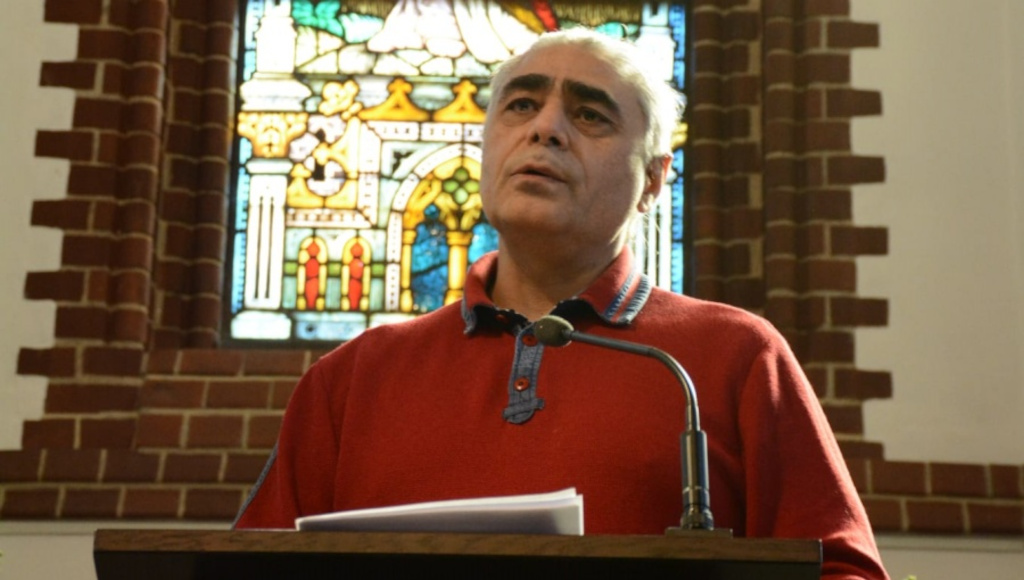A group of Turkish asylum seekers on Monday spoke about the mistreatment they faced in Turkish detention centers during an event in the German town of Warendorf, the Stockholm Center for Freedom reported, citing the Bold Medya news website.
The event took place at the Christ Church (Christuskirche) and was attended by German residents of the town. Journalist Tuncer Çetinkaya said he was kept in prison for two years for alleged links to the Gülen movement and criticizing Turkish President Recep Tayyip Erdoğan and his government’s policies.
“I had several health problems in prison, and some developed after my imprisonment because they neglected to give me my medicine on time,” he said. “I suffered from prostate cancer and a hernia and was scheduled for surgery. So they prepared me for it, took me to the operating room and left me there for 10 hours waiting for the doctors and nurses, completely naked and handcuffed to the bed.”
Çetinkaya worked for the now-closed Zaman daily. He was arrested on July 26, 2016 and sent to Antalya L-Type Prison in southern Turkey. He was accused of membership to an armed terrorist organization and sentenced to seven years, six months in prison.
Turkish President Recep Tayyip Erdoğan has been targeting followers of the Gülen movement, inspired by Turkish Muslim cleric Fethullah Gülen, since the corruption investigations of December 17-25, 2013, which implicated then-prime minister Erdoğan, his family members and his inner circle.
Dismissing the investigations as a Gülenist coup and conspiracy against his government, Erdoğan designated the movement as a terrorist organization and began to target its members. He intensified the crackdown on the movement following an abortive putsch in July 2016 that he accused Gülen of masterminding. Gülen and the movement strongly deny involvement in the coup attempt or any terrorist activity.
Çetinkaya was released on April 24, 2018 pending the decision of the Supreme Court of Appeals. After his release, he fled to Germany.
Turkey has a poor record on freedom of the press and was ranked 153rd out of 180 countries in the 2021 World Press Freedom Index.
Former teacher Cengiz Sönmez said he was abruptly detained in the middle of the street one day as he was walking with his son. He found out at the police station that his wife had also been detained.
“I was beaten and insulted at the police station,” said Sönmez. “Police officers would hang me out of the fourth floor window and threaten to drop me.”
An engineer who wanted to stay anonymous said he was beaten so badly in detention that his eardrum was perforated. Police officers pushed him to the floor and stepped on him so he could barely breathe.
His condition was so bad from the mistreatment that the police took him to the doctor; however, the doctor did not document the mistreatment.
“I was in police detention for four days. They did not allow me to go to the toilet and the light was on 24 hours,” he said. “They poured water over me and tried to get me to sign a false confession. When I did not agree to this, I was stripped naked and threatened me with rape.”
After the abortive putsch, ill-treatment and torture became widespread and systematic in Turkish detention centers. Lack of condemnation from higher officials and a readiness to cover up allegations rather than investigate them have resulted in widespread impunity for the security forces.
A total of 319,587 people have been detained and 99,962 arrested in operations against supporters of the Gülen movement since the coup attempt, Turkey’s Interior Minister Süleyman Soylu said in November.
